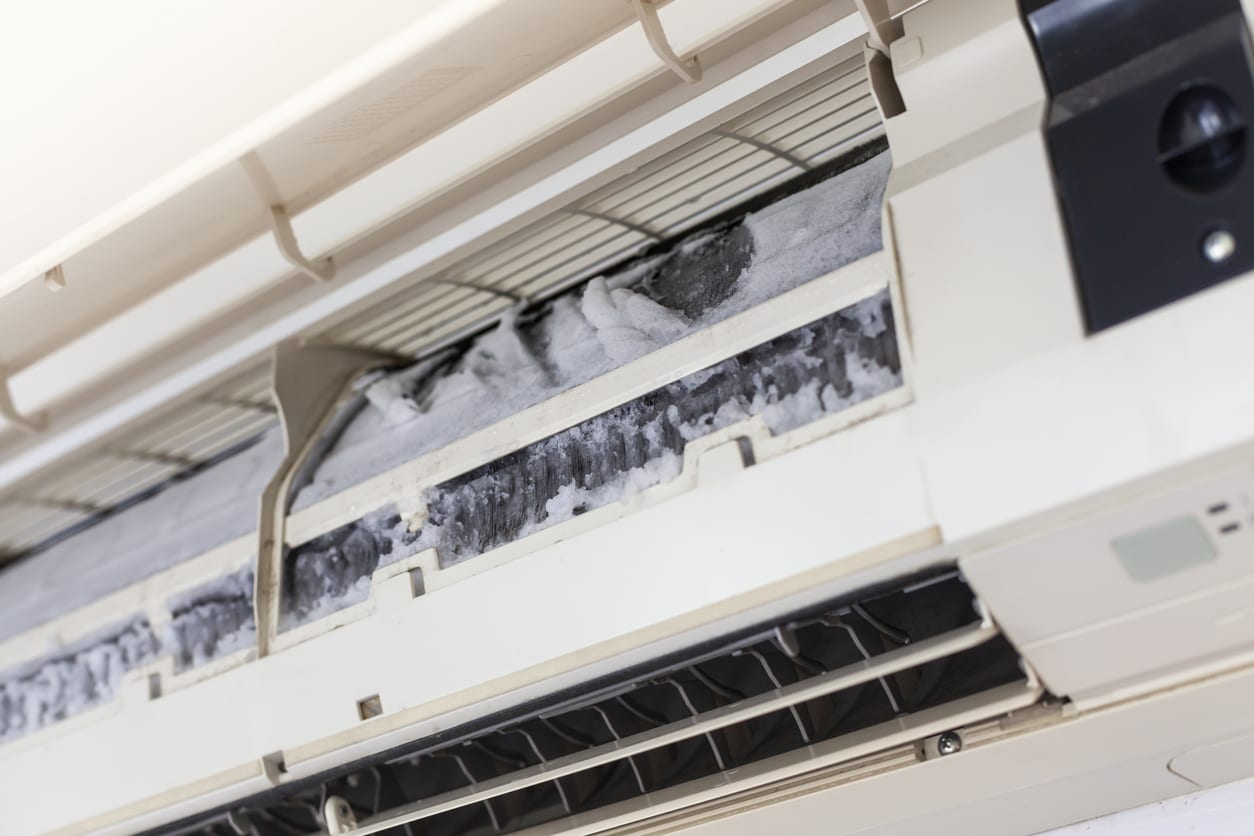

Articles
What To Do If Your AC Freezes
Modified: October 28, 2024
Learn what steps to take if your AC freezes and find helpful articles on how to troubleshoot and prevent this common issue.
(Many of the links in this article redirect to a specific reviewed product. Your purchase of these products through affiliate links helps to generate commission for Storables.com, at no extra cost. Learn more)
What To Do If Your AC Freezes
Introduction:
Having a functioning air conditioning (AC) system is essential for staying comfortable during hot summer months. However, there may be instances when your AC unit freezes up, causing it to work inefficiently or not at all. In this article, we will discuss the common signs of a frozen AC, safety precautions, troubleshooting steps, the importance of professional assistance, and prevention tips to avoid future problems.
Signs that Your AC is Frozen:
One of the first signs that your AC is frozen is a lack of cool air coming from the vents. You may also notice ice buildup on the evaporator coil, which is a clear indication that something is wrong. In some cases, you might hear strange noises coming from the unit as it works overtime to operate under frozen conditions.
Safety Precautions:
If you suspect that your AC is frozen, it is important to take some safety precautions before attempting any troubleshooting. Start by turning off the AC unit from the thermostat or control panel. Next, disconnect the power supply by finding the appropriate circuit breaker or removing the unit’s plug from the wall outlet. Lastly, allow the unit to thaw completely before proceeding with any further troubleshooting. This will help prevent any potential electrical hazards.
Troubleshooting Steps:
- Check the air filter: A dirty or clogged air filter can restrict airflow, leading to freezing of the AC unit. Clean or replace the air filter if necessary.
- Inspect and clean the evaporator coil: A dirty evaporator coil can also hinder proper airflow and cause freezing. Carefully inspect the coil and clean it using a soft brush or vacuum cleaner.
- Ensure proper airflow: Check if there are any obstructions around the AC unit or vents that may be blocking airflow. Clear away any debris or objects that might hinder proper air circulation.
- Promptly addressing a frozen AC unit is crucial to prevent further damage, restore efficiency, and maintain indoor air quality. Professional assistance is essential for complex issues and preventive maintenance.
- Regular maintenance, proper care, and attention to your AC system can minimize the chances of encountering a frozen unit or other issues. Stay proactive to ensure optimal cooling and comfort.
- Temperature Regulation: An AC system helps maintain a comfortable indoor temperature, preventing heat-related illnesses and ensuring a pleasant living environment.
- Humidity Control: AC units remove excess moisture from the air, reducing the risk of mold growth, improving indoor air quality, and preventing damage to furniture and other possessions.
- Energy Efficiency: A properly functioning AC system consumes less energy, leading to lower utility bills and reduced environmental impact.
- Productivity and Sleep: A cool and comfortable environment promotes better sleep quality, leading to improved focus and productivity during the day.
- Low Refrigerant Levels: When the refrigerant levels are low, the evaporator coil doesn’t receive enough warm air to keep it from freezing.
- Restricted Airflow: A clogged air filter, blocked vents, or closed dampers can significantly reduce the airflow, preventing proper heat exchange and leading to freezing.
- Damaged Blower Fan: A malfunctioning blower fan can disrupt the airflow, resulting in improper heat exchange and ice buildup on the evaporator coil.
- Thermostat Issues: A faulty thermostat can cause the AC to run continuously, leading to overcooling and eventual freezing.
- Poor Insulation: Inadequate insulation can cause cold air to escape from the ductwork or warm air to infiltrate, causing temperature imbalances that result in freezing.
- Improved Energy Efficiency: A well-maintained AC system operates more efficiently, reducing energy consumption and lowering utility bills.
- Extended Lifespan: Routine maintenance helps prolong the lifespan of your AC system, saving you from premature replacement costs.
- Enhanced Indoor Air Quality: Regular cleaning and maintenance of AC components, including air filters and evaporator coils, result in better indoor air quality by removing dust, allergens, and pollutants.
- Prevention of Costly Repairs: Proactive maintenance helps catch potential issues early on, preventing major system breakdowns and expensive repairs down the line.
- Peace of Mind: Knowing that your AC system is in optimal condition provides peace of mind, especially during periods of extreme heat when you rely on it the most.
- Preventing Further Damage: Prompt action can help prevent further damage to your AC system and its components, saving you from costly repairs or even system replacement.
- Restoring Efficiency: A frozen AC unit causes reduced cooling efficiency. By addressing the issue promptly, you can restore your AC system’s ability to cool your space effectively and maintain comfort.
- Preventing Utility Bill Spikes: A frozen AC unit leads to increased energy consumption as the system works harder to compensate for the loss of efficiency. Fixing the problem promptly can help prevent spikes in your utility bills.
- Maintaining Indoor Air Quality: A frozen AC unit can lead to poor indoor air quality due to improper humidity control and lack of efficient air filtration. Quick action can help maintain a healthy and clean indoor environment.
- Complex Repairs: If your AC unit continues to freeze even after performing basic troubleshooting steps, it may be a sign of a more complex underlying issue. Professional HVAC technicians have the expertise and tools to identify and fix these complex problems.
- Safety Precautions: Handling intricate AC components and dealing with refrigerant requires specific training and safety precautions. Licensed HVAC technicians are equipped to handle these tasks safely and effectively.
- Preventive Maintenance: Regular professional AC maintenance is essential for preventing AC freezing and other issues. HVAC technicians can perform comprehensive inspections, cleanings, and tune-ups to keep your AC system in optimal condition.
- Peace of Mind: Seeking professional assistance for complex AC issues provides peace of mind knowing that the problem is being addressed by trained professionals who will ensure the proper functioning of your AC system.
Key Takeaways:
Read more: What Causes AC Line To Freeze
Introduction:
A functional air conditioning (AC) system is crucial for maintaining a comfortable living environment, especially during scorching hot summer days. Whether it’s at home or in the workplace, the AC plays a vital role in regulating temperature, reducing humidity, and improving indoor air quality. However, there can be instances when your AC unit freezes up, causing it to malfunction and hamper its efficiency. In this article, we will explore why a functioning AC system is important and delve into the common causes of AC freezing.
Importance of a Functioning AC System:
A functioning AC system goes beyond providing comfort – it also offers numerous benefits to our health and well-being. Here are a few reasons why a functional AC system is essential:
Common Causes of AC Freezing:
AC freezing occurs when the evaporator coil – responsible for cooling the air – becomes too cold, causing condensation to freeze on its surface. Some common causes of AC freezing include:
Identifying these common causes can help you determine the best course of action to address the freezing issue and prevent further damage to your AC system.
Signs that Your AC is Frozen
When your air conditioning (AC) system freezes up, it can lead to discomfort and reduced cooling efficiency. Recognizing the signs of a frozen AC is crucial in order to address the issue promptly. Here are the common signs to look out for:
Lack of Cool Air:
One of the first indicators that your AC is frozen is a lack of cool air coming from the vents. Instead of feeling a refreshing blast of cold air, you may notice that the airflow is weak or warm. This occurs when the refrigerant can’t properly flow through the system due to the frozen evaporator coil.
Ice Buildup on the Evaporator Coil:
Another noticeable sign of a frozen AC is the presence of ice or frost on the evaporator coil. The evaporator coil is responsible for absorbing the heat from the surrounding air, but when it becomes too cold, condensation on the coil can freeze, forming a layer of ice. If you open the access panel and see ice on the coil or even extending to the refrigerant lines, it’s a clear indication that your AC is frozen.
Read more: Why Is My AC Freezing Over
Strange Noises Coming from the Unit:
A frozen AC may produce unusual sounds as it struggles to operate under frozen conditions. You might hear hissing or bubbling noises caused by refrigerant flowing through restricted passages, or rattling and banging sounds due to the imbalanced movement of the blower fan. These noises should not be ignored, as they are warning signs of a frozen AC that needs immediate attention.
If you notice any of these signs, it’s important to take action to address the frozen AC issue. Ignoring the problem can lead to further damage to your system and potentially higher repair costs. Additionally, a frozen AC will not be able to efficiently cool your space, which can be uncomfortable, particularly during hot summer months.
In the next sections, we will discuss the necessary safety precautions to take before troubleshooting a frozen AC unit and walk you through the steps to address the issue effectively.
Safety Precautions
When dealing with a frozen air conditioning (AC) unit, it is important to prioritize safety. Taking the necessary precautions will help protect you from potential electrical hazards and ensure a smooth troubleshooting process. Here are the key safety measures to follow:
Turn off the AC Unit:
The first step is to turn off the AC unit. You can do this by adjusting the thermostat settings to “off” or “fan only” mode. Alternatively, locate the control panel or power switch dedicated to the AC unit and switch it off. This will prevent the AC from running while you address the frozen issue.
Disconnect the Power Supply:
To further ensure your safety, it is crucial to disconnect the power supply to the AC unit. Locate the dedicated circuit breaker for the AC system in your electrical panel and switch it off. Alternatively, you can unplug the AC unit from the wall outlet if it is easily accessible. By doing so, you eliminate the risk of electrical shocks or short circuits that may occur during the troubleshooting process.
Read more: What Temperature Do Mums Freeze
Allow the Unit to Thaw Before Performing Any Troubleshooting:
Once the power supply has been disconnected, it is important to allow the AC unit to thaw completely before attempting any troubleshooting. This typically involves turning off the AC unit and leaving it idle for a few hours or overnight, depending on the severity of the freezing. Allowing the ice on the evaporator coil and refrigerant lines to melt will prevent potential damage to the system and make it easier to identify the cause of the freezing problem.
Thawing the AC unit may take some time, so it is essential to be patient and resist the temptation to rush the process. Trying to manually remove ice or troubleshoot a partially frozen unit can result in further damage to the components or personal injury. It is important to wait until the unit has thawed completely before proceeding with any troubleshooting steps.
By following these safety precautions, you can protect yourself from potential electrical hazards and ensure a safe environment while addressing the frozen AC issue. Once the unit has thawed, you can move on to troubleshooting the problem by checking the air filter, inspecting the evaporator coil, and ensuring proper airflow within the system.
Troubleshooting Steps
Once you have taken the necessary safety precautions and allowed your frozen air conditioning (AC) unit to thaw, you can start troubleshooting the issue. Here are the steps to follow:
1. Check the Air Filter:
A clogged or dirty air filter can restrict airflow, leading to improper cooling and potential freezing of the AC unit. Start by locating the air filter, typically found in the return air duct or inside the air handler or furnace. If the filter is dirty, clean or replace it according to the manufacturer’s instructions. Regularly maintaining a clean air filter will not only prevent freezing but also improve overall AC system performance and energy efficiency.
2. Inspect and Clean the Evaporator Coil:
The evaporator coil is responsible for absorbing heat from the air to cool it down. Over time, dust, debris, and dirt can accumulate on the coil, reducing its efficiency and potentially causing freezing. Carefully inspect the evaporator coil for any visible dirt or debris. If necessary, clean the coil using a soft brush or a vacuum cleaner with a brush attachment. Take care not to bend or damage the delicate fins on the coil.
Read more: Why Is My Window AC Freezing Up
3. Ensure Proper Airflow in the Unit:
Proper airflow is crucial for preventing AC freezing. Check for any obstructions that may restrict airflow, such as furniture, curtains, or other objects obstructing the vents or the indoor unit. Clear away any debris or obstructions to allow for optimal airflow. Additionally, make sure the supply and return vents are open and unobstructed to ensure proper air circulation throughout the space.
4. Check for Refrigerant Leaks:
Low refrigerant levels can cause the evaporator coil to freeze. Carefully inspect the refrigerant lines and connections for any signs of leakage, such as oil stains, wet spots, or hissing sounds. If you suspect a refrigerant leak, it is essential to contact a professional HVAC technician to identify and repair the leak and recharge the system with the correct amount of refrigerant.
5. Verify the Functionality of the Blower Motor:
The blower motor is responsible for circulating air over the evaporator coil and throughout the ductwork. A malfunctioning blower motor can hinder proper airflow and contribute to AC freezing. Test the blower motor to ensure it is running smoothly and at the correct speed. If you notice any irregularities, such as unusual noises or poor airflow, it may require professional attention or repair.
By following these troubleshooting steps, you can address the common causes of AC freezing and potentially resolve the issue. However, if you are unable to identify or fix the problem on your own, it is advisable to seek the assistance of a licensed HVAC technician to avoid further damage and ensure the proper functioning of your AC system.
Professional Assistance
If the troubleshooting steps you’ve taken do not resolve the frozen air conditioning (AC) issue, it is important to contact a licensed HVAC technician for professional assistance. While some minor AC problems can be resolved through DIY troubleshooting, more complex issues may require the expertise and experience of a professional. Here are a few reasons why seeking professional help is essential:
Read more: Why Does an AC Unit Freeze Up
Contacting a Licensed HVAC Technician:
Licensed HVAC technicians have the knowledge, training, and specialized tools to diagnose and address AC system problems effectively. They are experienced in dealing with various AC issues, including frozen units, and can provide the most suitable solutions based on your specific situation. Attempting to fix intricate AC problems without the necessary skills can potentially lead to further damage or voiding of warranties.
Importance of Regular AC Maintenance:
Prevention is always better than a cure when it comes to maintaining your AC system’s performance and longevity. By scheduling regular AC maintenance with a professional technician, you can prevent potential issues, including AC freezing. During routine maintenance visits, the technician will inspect and clean various components, check refrigerant levels, and ensure proper system operation. This proactive approach can help identify and address any underlying problems before they escalate into major issues.
Regular AC maintenance offers several benefits:
By partnering with a trusted HVAC technician for regular maintenance and seeking professional assistance when troubleshooting steps don’t resolve AC freezing, you can ensure the longevity, efficiency, and reliable operation of your AC system for years to come.
Prevention Tips
To minimize the risk of your air conditioning (AC) system freezing and experiencing other issues, it is important to take proactive measures to prevent such problems from occurring in the first place. Here are some prevention tips to keep your AC system running smoothly:
Regularly Clean or Replace Air Filters:
One of the simplest yet most crucial maintenance tasks for your AC system is regularly cleaning or replacing the air filters. Clogged or dirty filters restrict airflow, impairing the performance of the AC unit and increasing the likelihood of freezing. Check your air filters at least once a month and clean or replace them as needed. This will not only prevent AC freezing but also improve indoor air quality and increase energy efficiency.
Schedule Professional AC System Maintenance:
Regular professional maintenance is essential for the optimal performance of your AC system. Schedule annual or bi-annual maintenance visits with a licensed HVAC technician who can inspect, clean, and tune-up your AC system. During these visits, the technician will check refrigerant levels, clean the evaporator and condenser coils, lubricate moving parts, and ensure all components are functioning properly. Additionally, they can identify and address any potential issues before they escalate into major problems, including AC freezing.
Read also: 13 Amazing AC Leak Freeze for 2025
Ensure Proper Insulation and Ventilation in the Home:
Poor insulation and ventilation can lead to temperature imbalances, putting additional strain on the AC system and increasing the risk of freezing. Ensure that your home is properly insulated to minimize heat transfer and maintain consistent indoor temperatures. Additionally, make sure that vents are not blocked by furniture or other obstructions and that air can flow freely throughout your home. Proper insulation and ventilation help the AC system operate efficiently and prevent excessive strain on the evaporator coil.
By following these prevention tips, you can minimize the chances of your AC system freezing and experiencing other issues. Regular maintenance, cleaning or replacing air filters, and promoting proper insulation and ventilation will contribute to a healthier and more efficient AC system.
Remember, prevention is always better than dealing with the consequences of a malfunctioning AC system. Implementing these prevention tips will not only save you from inconvenient breakdowns but also extend the lifespan of your AC system and ensure optimal comfort in your home.
Conclusion
Addressing a frozen air conditioning (AC) unit promptly is crucial for maintaining a comfortable and efficient cooling system in your home or workplace. Ignoring a frozen AC can lead to further damage, reduced performance, and higher repair costs. Let’s summarize the importance of addressing a frozen AC unit promptly and the role of professional assistance for complex issues:
Summary of the Importance of Addressing a Frozen AC Unit Promptly:
Dealing with a frozen AC unit as soon as possible is essential for the following reasons:
Importance of Professional Assistance for Complex Issues:
While some AC freezing issues can be resolved with DIY troubleshooting, there are situations when professional assistance is necessary:
By understanding the importance of addressing a frozen AC unit promptly and enlisting the help of professional HVAC technicians for complex issues, you can maintain a reliable and efficient cooling system throughout the year.
Remember, prevention is key – regular maintenance, proper care, and attention to your AC system can help minimize the chances of encountering a frozen AC unit or other issues. Stay proactive and prioritize the well-being of your AC system to ensure optimal cooling and comfort in your living or working space.
Frequently Asked Questions about What To Do If Your AC Freezes
Was this page helpful?
At Storables.com, we guarantee accurate and reliable information. Our content, validated by Expert Board Contributors, is crafted following stringent Editorial Policies. We're committed to providing you with well-researched, expert-backed insights for all your informational needs.
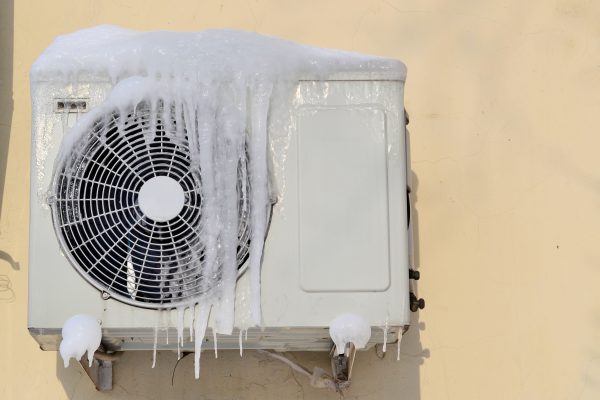
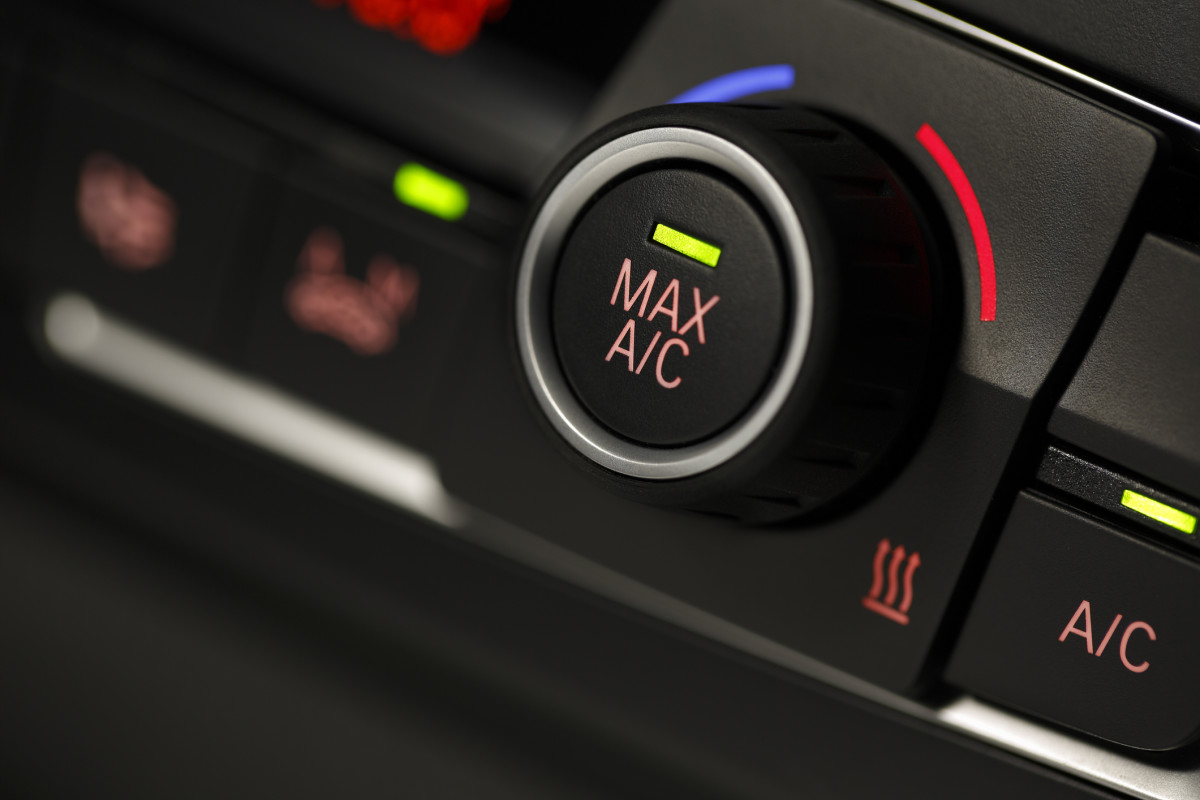


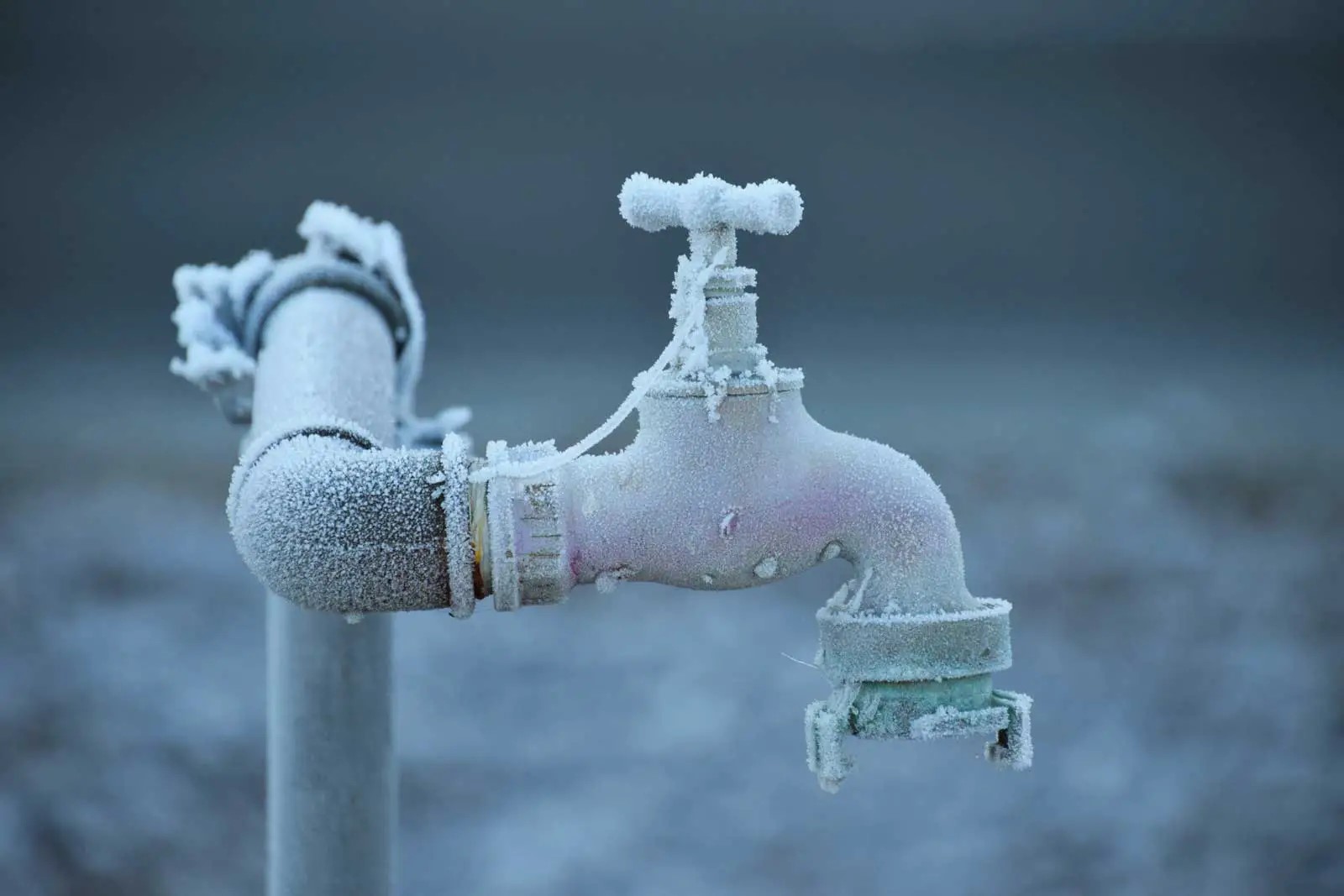
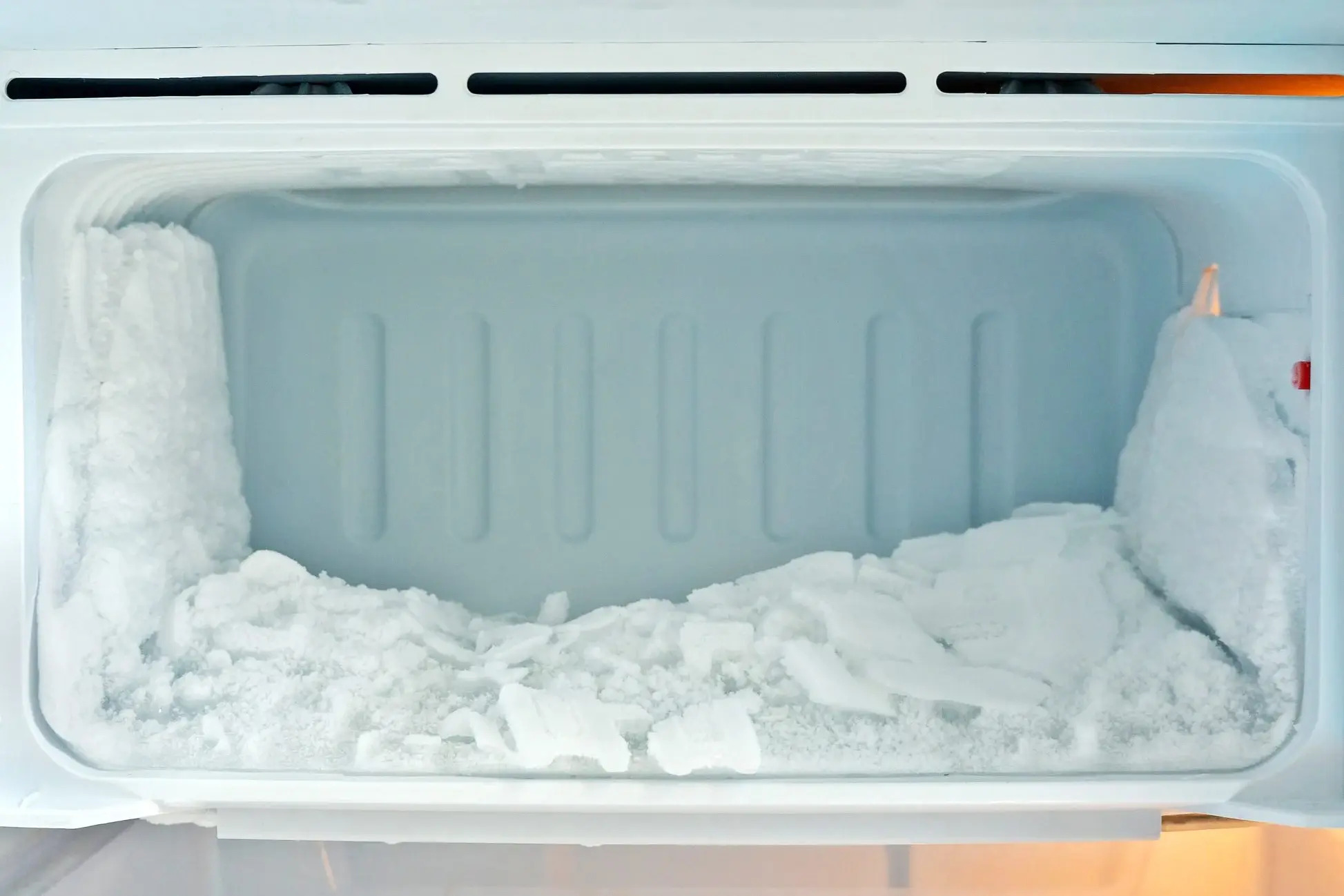
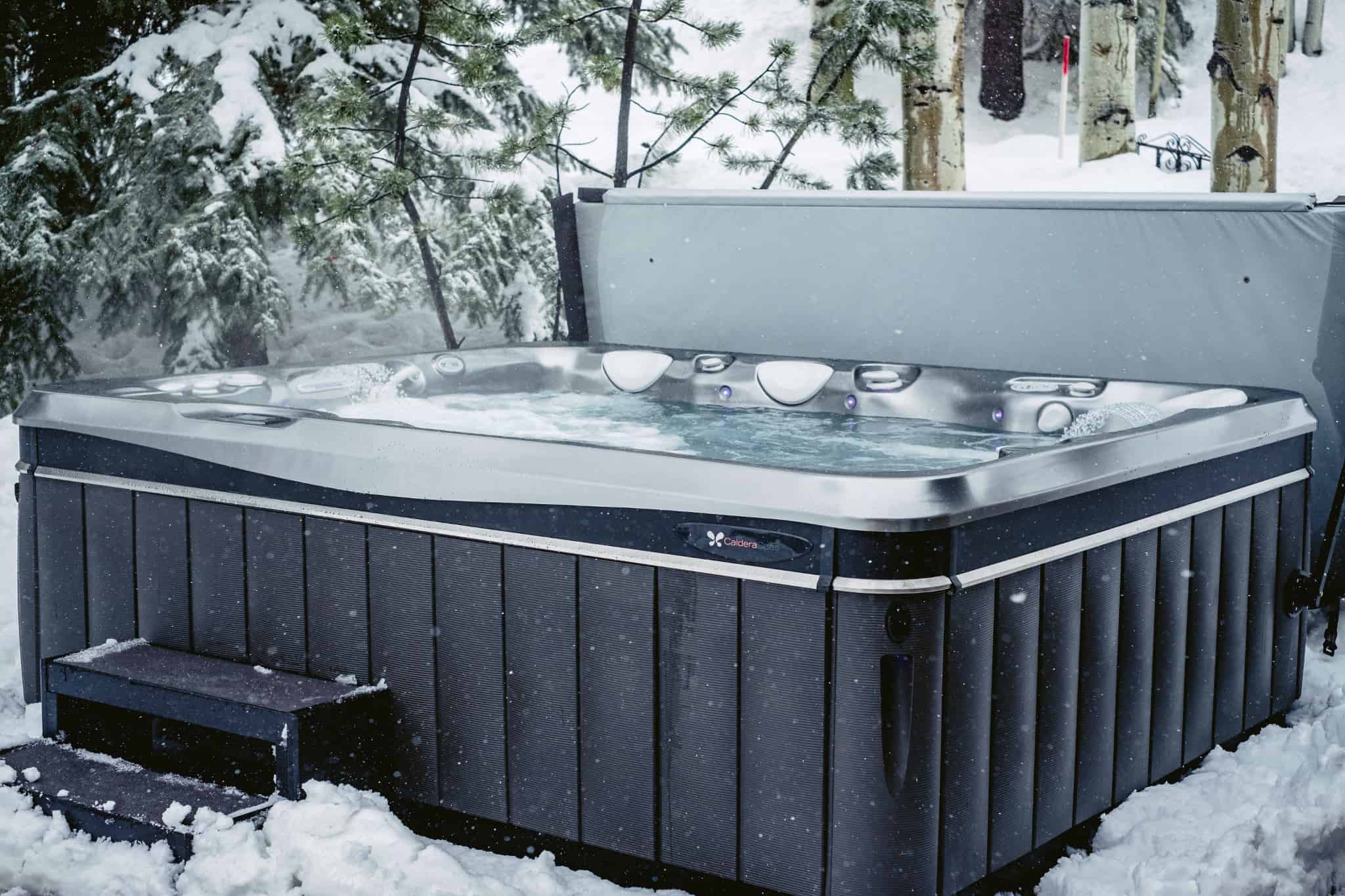
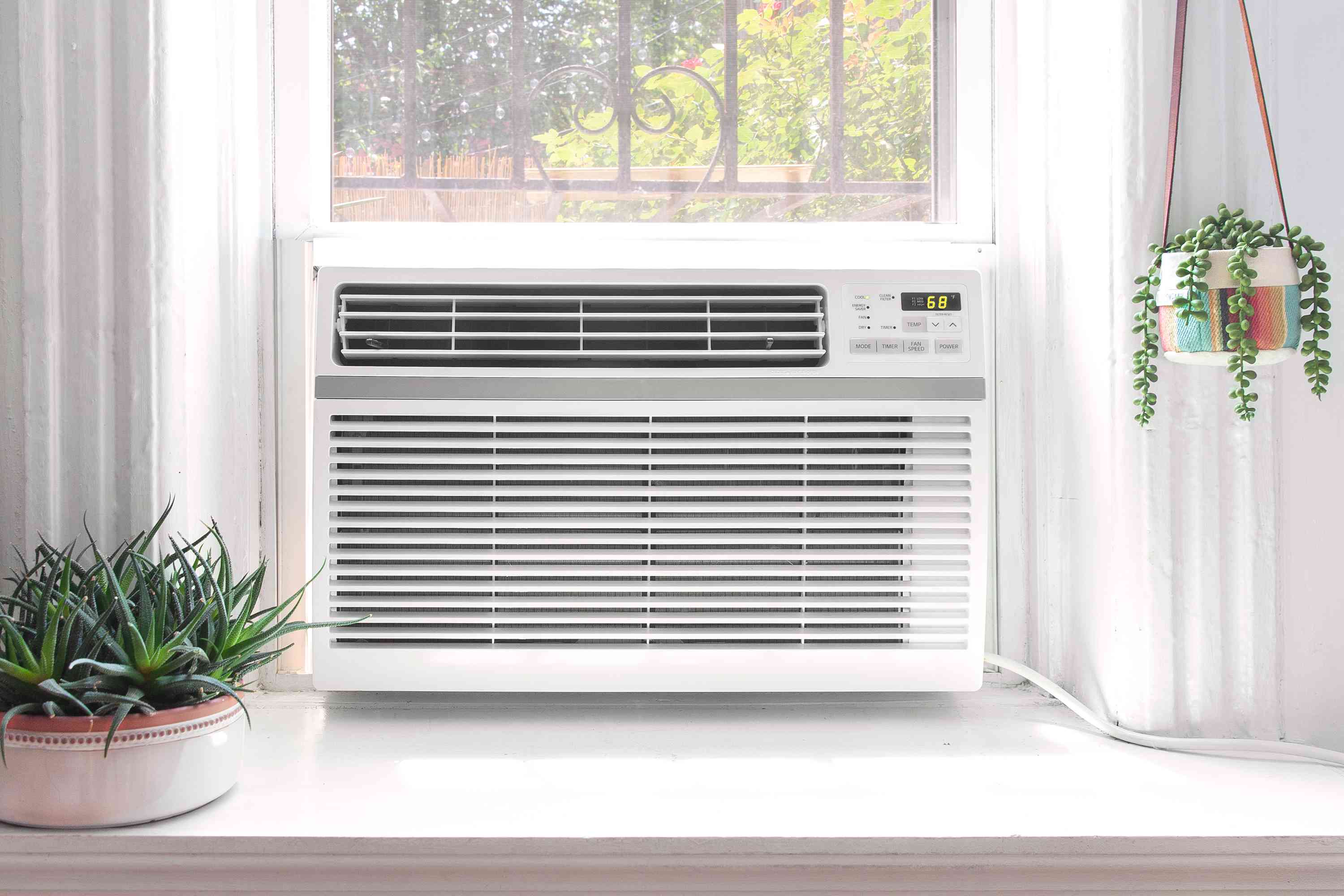

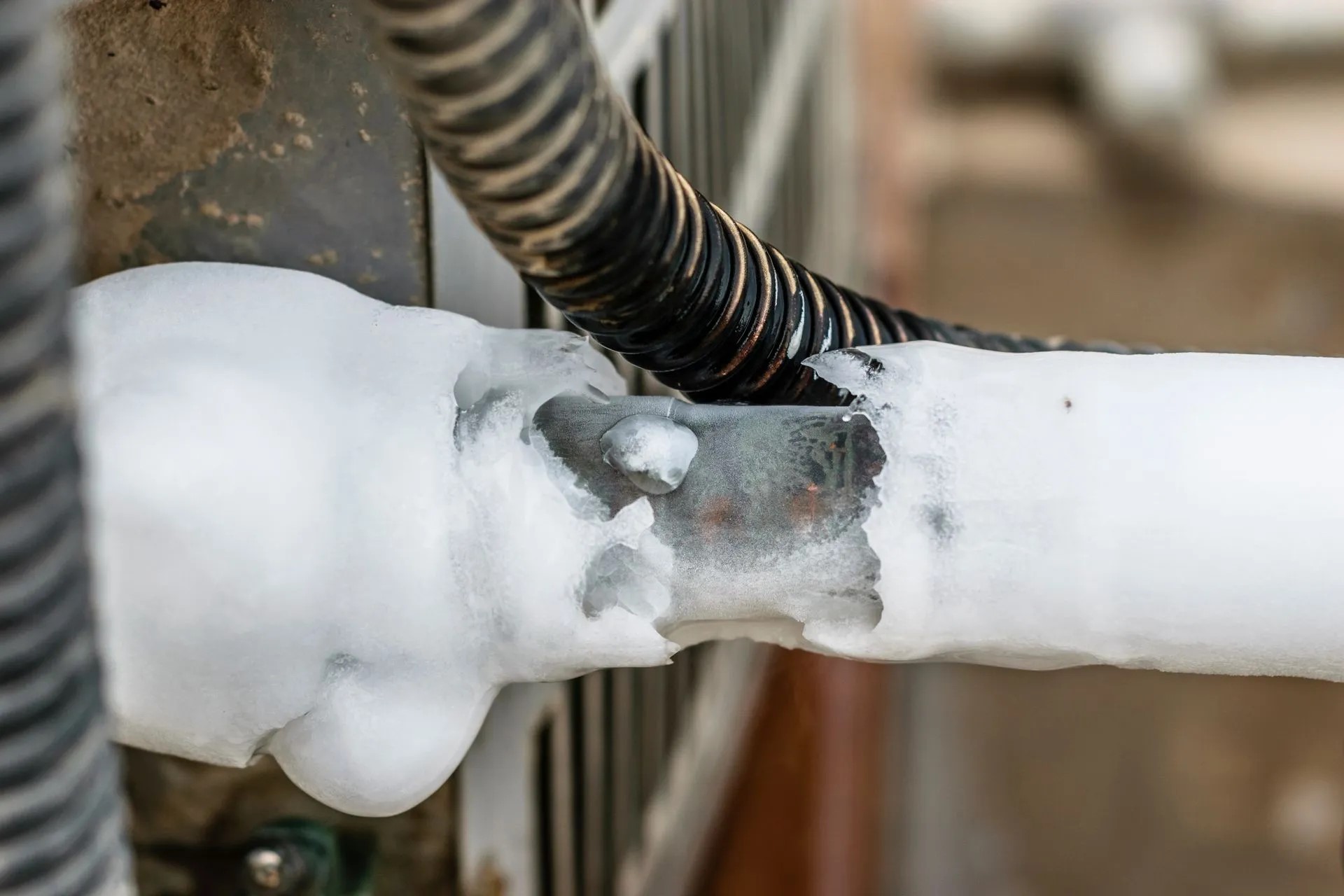

0 thoughts on “What To Do If Your AC Freezes”